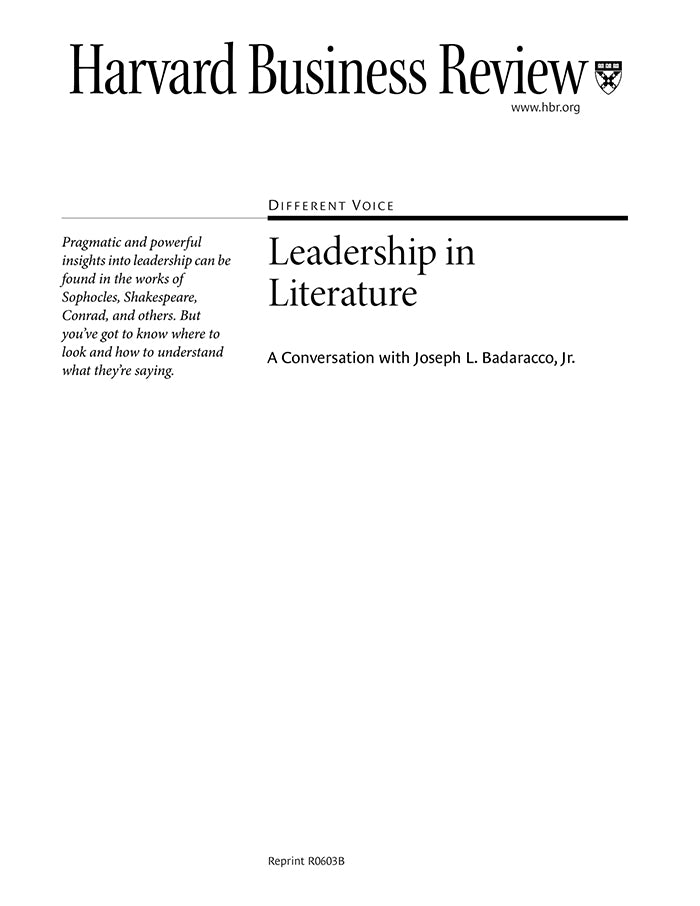Leadership in Literature: A Conversation with Business Ethicist Joseph L. Badaracco, Jr.
受取状況を読み込めませんでした
Business students nowadays are not, for the most part, poets. A growing proportion come to business school with a background in investment banking or management consulting and an undergraduate business major, rather than a degree in the arts and sciences. MBA students are already very familiar with business. A number of scholars and businesspeople have begun to question the scientific model that dominates business research and teaching. Formalized management tools work well enough if you're studying techniques for financial valuation, but less so when you're studying leadership and organizational behavior. Some argue that students could learn a lot more about these subjects if they took a course in literature. Examples from fiction can be as instructive as any business textbook. HBR senior editor Diane Coutu recently met with Joseph Badaracco Jr. for a wide-ranging discussion of what leaders can learn from literature. For the past decade, Badaracco, the John Shad Professor of Business Ethics at Harvard Business School, has used classical literature to provide well-rounded, complex pictures of leaders in all walks of life--particularly leaders whose psychological and emotional challenges parallel those of senior executives. Fiction provides some of the most powerful and engaging case studies ever written. Unlike contemporary management literature, which is relentlessly upbeat, classical literature is unsparingly realist. Leaders often struggle and sometimes fail--and the stakes are high. When business leaders read about the conflicts of literary characters, they can better understand their own circumstances. We pay far too little attention to the inner lives of leaders. Business school courses seem to suggest that you can treat executives like lab animals and control their behavior through their environment. But behaviorism is not enough. Literature suggests that leaders should learn more about themselves if they want to succeed.
【書誌情報】
ページ数:12ページ
サイズ:A4
商品番号:HBSP-R0603B
発行日:2006/3/1
登録日:2012/3/28


